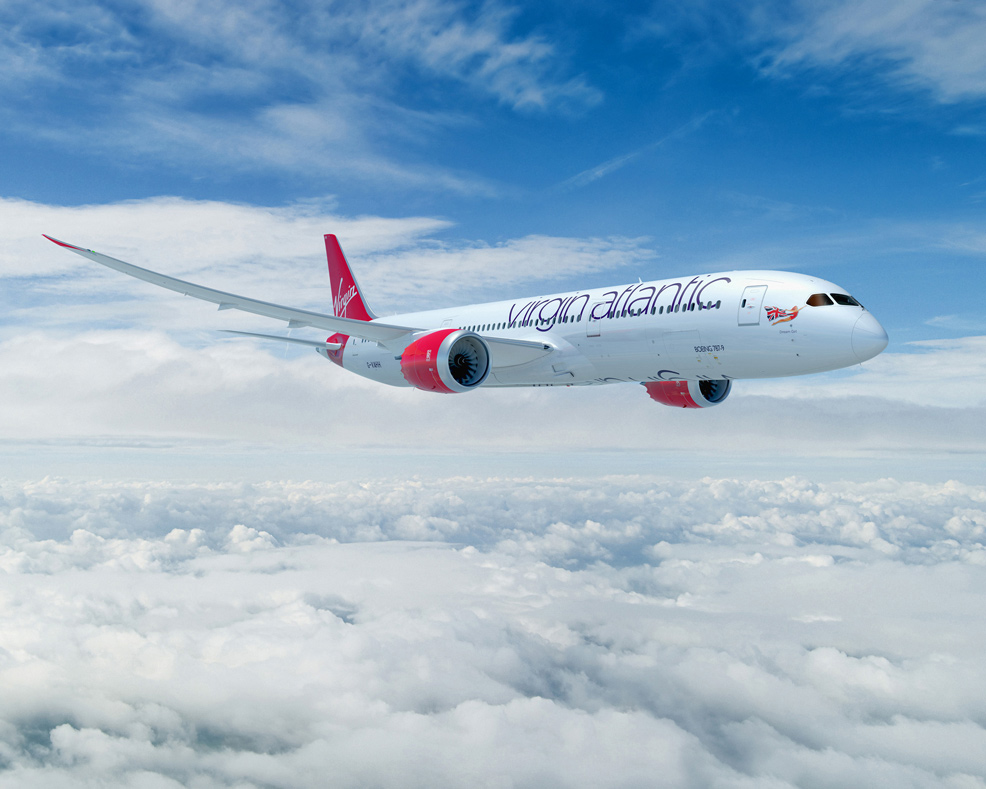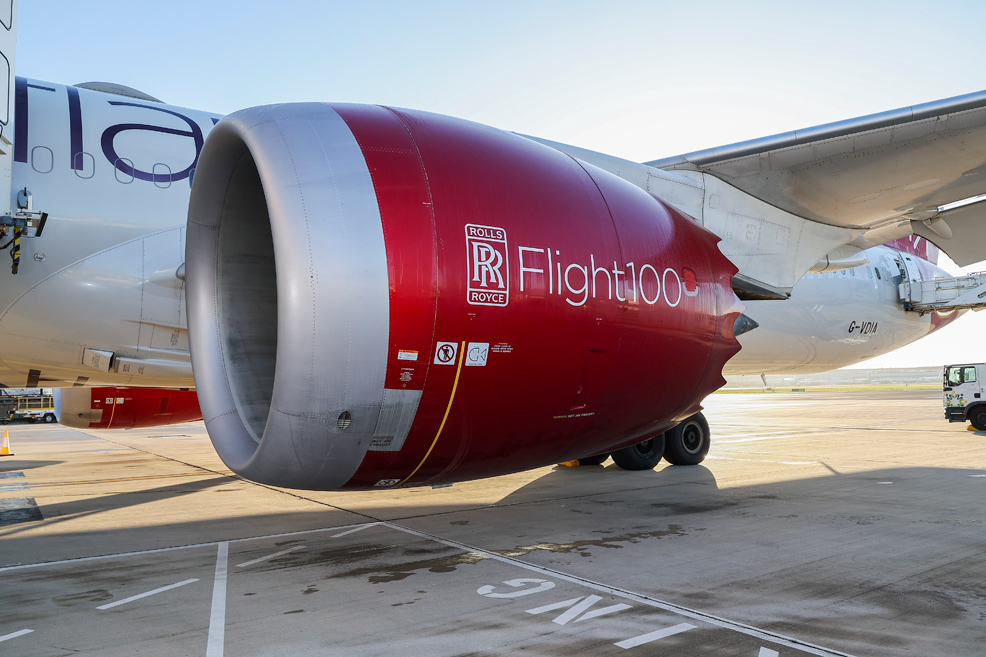
1st December 2023 Transatlantic jet uses 100% sustainable fuel Virgin Atlantic has conducted the first ever transatlantic flight by a large plane using 100% sustainable aviation fuel. A Boeing 787 made the passengerless journey, travelling from London Heathrow to New York's JFK airport.
The aviation industry is today responsible for around 800 megatonnes (Mt) of CO2 each year – or 2% of global energy-related CO2 emissions – an amount that has grown faster in recent decades than rail, road, or shipping. Driven by surging demand from the Asia-Pacific and Middle Eastern regions, the number of commercial airplanes in service is expected to rise from 24,000 in 2023 to more than 45,000 by 2035. In a business-as-usual scenario, this could mean a doubling of CO2 emissions, resulting in substantial contributions to global warming. Even without the looming threat of climate impacts, it would also result in lower air quality for many parts of the world. However, a greener way of flying is possible. Virgin Atlantic, the British airline founded by Sir Richard Branson, has just demonstrated Flight100 – a historic flight that used 100% Sustainable Aviation Fuel (SAF). On Tuesday, it became the world's first commercial jet to fly across the Atlantic without the need for traditional fossil fuel-based propulsion.
The Boeing 787 seen here is powered by Rolls-Royce Trent 1000 engines. These use a unique dual blend of 88% HEFA (Hydroprocessed Esters and Fatty Acids) and 12% SAK (Synthetic Aromatic Kerosene). The HEFA is made from waste fats, while the SAK is made from plant sugars, with the remainder of plant oils, proteins, and fibres continuing into the food chain. This milestone in aviation involved a collaboration between Virgin Atlantic, Boeing, Rolls-Royce, Imperial College London, the University of Sheffield, ICF, and the Rocky Mountain Institute, in partnership with the UK's Department for Transport. The team behind Flight100 will now analyse the data obtained from its 5,550 km (3,450 mi) journey to assess the overall performance, as well as the effect of the new fuel's non‐carbon emissions. They hope to show that production can be scaled up efficiently, potentially allowing other planes to use it. In 2021, many of the world's airlines, airports, fuel suppliers, and other stakeholders – including Virgin Atlantic – agreed to an industry target of 10% SAF by 2030, forming part of the longer-term goal of net zero by 2050. In addition to lowering carbon emissions and air pollution, sustainable aviation fuel is expected to bring significant social and economic benefits. A study by the London Chamber of Commerce and Industry (LCCI) has estimated £1.8 billion in Gross Value Added to the UK and more than 10,000 new jobs by 2030. "The world will always assume something can't be done, until you do it. The spirit of innovation is getting out there and trying to prove that we can do things better for everyone's benefit," said Sir Richard Branson, founder of Virgin Atlantic. "Virgin Atlantic has been challenging the status quo and pushing the aviation industry to never settle and do better since 1984. Fast forward nearly 40 years and that pioneering spirit continues to be Virgin Atlantic's beating heart as it pushes the boundaries, from carbon fibre aircraft and fleet upgrades to sustainable fuels. I couldn't be prouder to be onboard Flight100 today alongside the teams at Virgin Atlantic and our partners, which have been working together to set the flight path for the decarbonisation of long-haul aviation."
Comments »
If you enjoyed this article, please consider sharing it:
|








